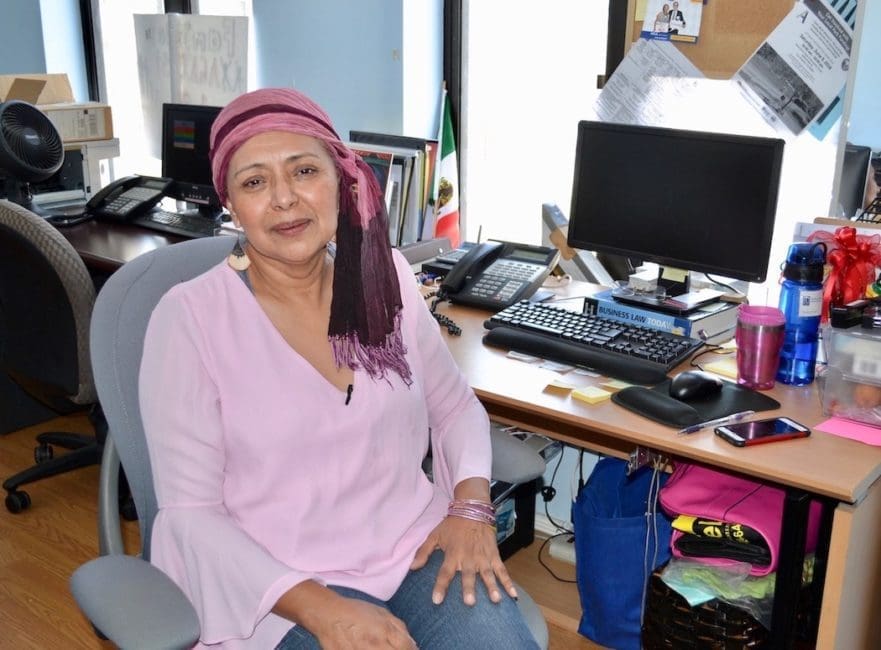Georgina Serrano, an enthusiastic, big-hearted woman, is a community organizer in Los Angeles for Inquilinos Unidos, a housing justice nonprofit. She works, each day, on the frontlines of California’s housing affordability crisis. She’s never seen a more perilous time for the working-class people she serves.
“Tenants used to complain about housing conditions — rats, leaking pipes, and toilets not working,” explains Serrano, sitting at her desk at the Inquilinos Unidos headquarters. “Now we’re seeing evictions — evictions, evictions, evictions. The landlords just want more money.”
Runaway corporate landlord greed is rampant, and largely unchecked, in California. It’s fueling the state’s housing affordability crisis.
As corporate landlords such as Blackstone Group CEO Stephen Schwarzman and Equity Residential Chairman Sam Zell grab for even more king-sized profits, median rents in California are higher than any other state in the country. Among all 50 states, California has the fourth highest increase in rents.
According to the National Low Income Housing Coalition, a Californian earning minimum wage would have to work 92 hours per week in order to afford to rent an average one-bedroom apartment. And even though the state represents only 12 percent of the total U.S. population, California is home to 22 percent of the nation’s homeless population, according to the California Department of Housing and Community Development.
California is facing dire housing affordability and homeless crises, which are devastating lives and communities. An urgent response is needed, but with solutions that benefit the people, not just corporate landlords and developers. Housing policies should protect tenants, preserve existing affordable housing, and produce truly affordable housing.
It’s why Serrano supported California’s Proposition 10. The 2018 ballot measure would have repealed statewide restrictions on rent control. More than 525 organizations and civic leaders backed Prop 10, but Big Real Estate, especially corporate landlords, shelled out $77.3 million to stop the initiative. It lost statewide, but won in cities — Los Angeles, San Francisco, Oakland, Glendale, Inglewood, among others — where sky-high rents are too often the norm.
Serrano was one of those people who faced the prospect of homelessness. A longtime Angeleno, she lost her job at a nonprofit a few years ago, worked part-time jobs, and used up her savings to maintain a roof over her head. But faced with a monthly rent of $1,300, she couldn’t keep up.
“I was never in the streets,” Serrano says. “My friends — my angels — allowed me to sleep on their couches. But I was homeless.”
To improve her chances of landing a good job, Serrano attended Los Angeles Trade-Technical College to get her Associate’s degree. She found students who were in the same boat as her.
“They had very good grades,” Serrano recalls, “but they didn’t have a home.”
Serrano was shocked, but it was a sad truth that was revealed in a 2017 survey commissioned by the Los Angeles Community College District Board of Trustees. It found that one in every five of LA’s 230,000 community college students was homeless — and nearly two-thirds didn’t have enough money to eat properly.
Serrano was hired by Inquilinos Unidos — and found a home. But the working-class tenants she assists are still getting slammed.
“People are desperate for help,” Serrano says. “They have no idea what they can do in these situations.”
Serrano pauses and looks out her window.
“It’s so important to stop increasing rents so we don’t have more people in the street,” she says. “And that’s impacting the entire city’s health. We’re seeing families — children — on the streets.”
For Serrano, it’s a humanitarian crisis that demands swift, urgent action.

